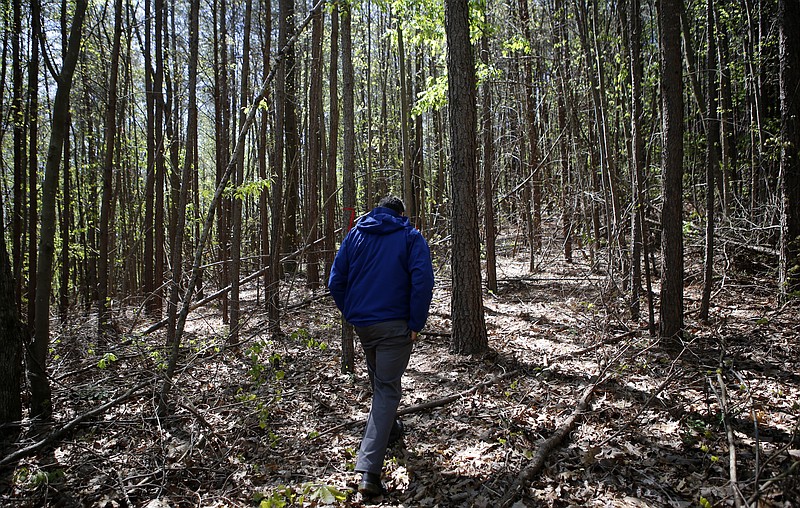As we celebrate Earth Day on Sunday, take a moment to appreciate the spectacular part we call Tennessee. From the towering Appalachians; through the rolling ridges of the Tennessee Valley; across the Cumberland Plateau and its canyons and streams, through the Highland Rim; down to the rich soils and the rivers draining into the Mississippi, Tennessee offers an unparalleled array of natural wonder.
Whether you enjoy hiking the trail systems in Chattanooga, picnicking at Myatt Park in Gatlinburg, hang-gliding above the Sequatchie Valley, catching trout in the world-class Holston, Hiwassee, Clinch and Caney Fork rivers, hunting deer, duck, dove or bear in our state Wildlife Management Areas, or fishing at Pickwick Lake, we can all marvel at Tennessee's abundant natural blessings.
While these blessings are God-given, their long-term stewardship is our responsibility. Almost all federal, state, local and even private parks and open spaces of Tennessee are here today because of the vision of leaders before us, who worked to ensure that the natural treasures of our state would remain for generations to come.
As Earth Day approaches, I also reflect on the leadership of former Gov. and current candidate for U.S. Senate Phil Bredesen and the impact he has had on our state. As an avid outdoorsman, I am truly thankful that he has made land conservation a hallmark of his vision.
Bredesen's far-sighted work as governor resulted in the protection of more than 280,000 acres. In 2005, he established a dedicated source of funding to preserve priority places by founding the Heritage Conservation Trust Fund, creating a better way to respond to land-acquisition conservation opportunities. Because of that leadership, more than 40,000 critical acres were protected.
Additionally, through a series of public-private partnerships, Bredesen's Connecting the Cumberlands initiative conserved 127,000 acres, part of Tennessee's largest conservation achievement since the Great Smoky Mountains. This initiative safeguarded a swath of forestland on the northern Plateau in Anderson, Campbell, Morgan and Scott counties, using conservation tools that both protect the land and help grow local economies.
Bredesen succeeded in these visionary projects because he recognizes that success requires partnerships among landowners, government agencies, nonprofits and businesses. He also recognizes that a vibrant economy and environmental protection are not mutually exclusive, but rather are both part of the equation that makes Tennessee great, and a big reason that many of us choose to live and work here.
As Bredesen has said, once Tennessee's unique land and natural resources are gone, we can never bring them back.
I am deeply mindful of the impact of Bredesen's conservation work, and I also reflect on our own choices for leadership to succeed my friend Bob Corker in Washington. Bredesen understands the need to protect Tennessee's natural resources; he has done so on a local and state level, using both public and private resources. All who appreciate the natural bounty of Tennessee will benefit from a leader who brings us together, getting remarkable things done for our state.
Allen McCallie is a Chattanooga lawyer, long-time Tennessee conservationist, cyclist, hiker, hunter and trout fisherman.
